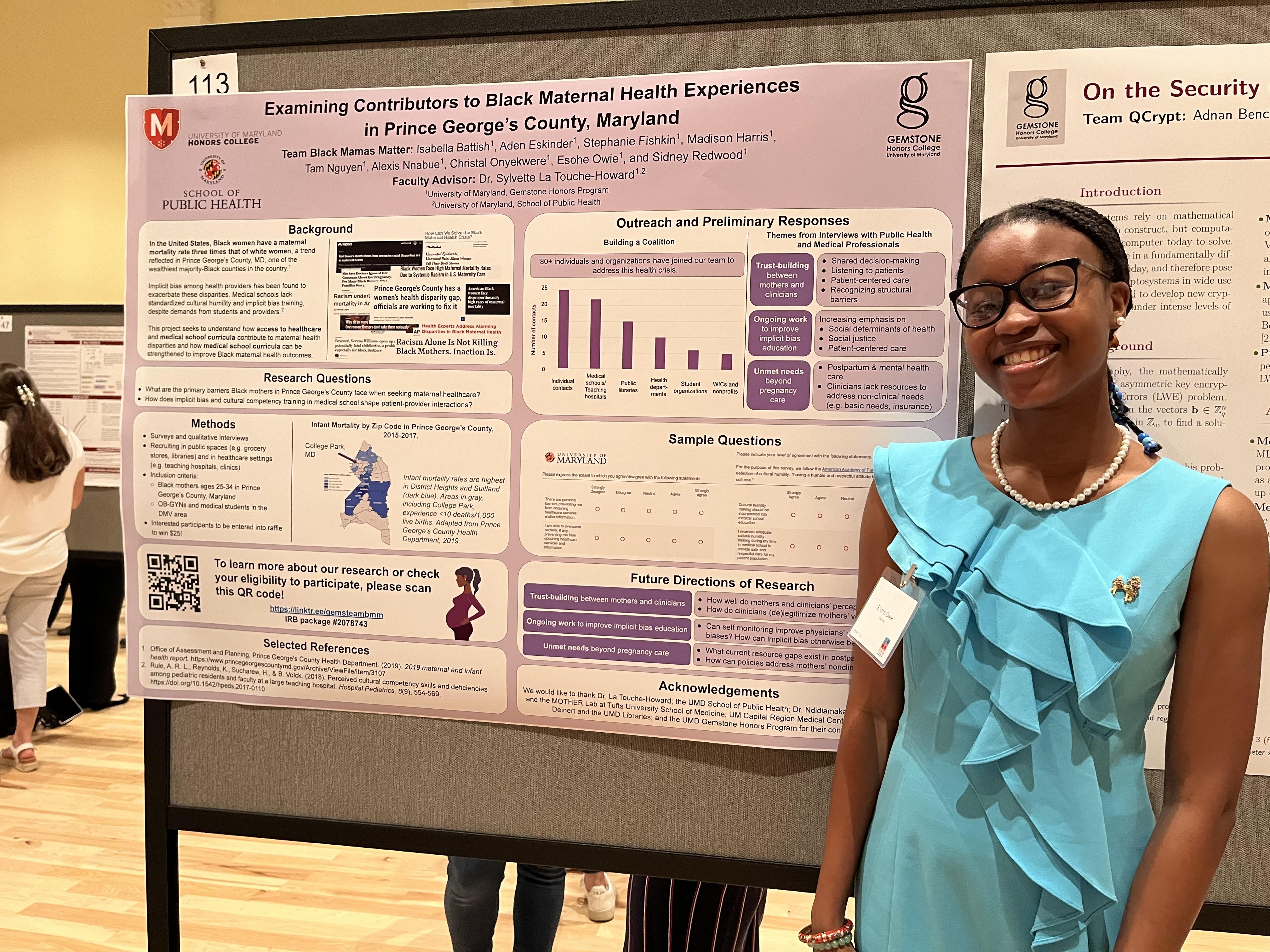
Esohe Owie came with her family to Maryland from Lagos, Nigeria in her early teens, the eldest of three siblings. Adjusting to this new world was challenging, especially when – just a few years later – she needed to navigate an unfamiliar college system.
“As the first in my family to go to college in the United States, I had to figure the process out by myself. The system is totally different, and when I was applying to UMD, I didn't really have anyone to ask questions of,” said Owie, who is now a senior in the School of Public Health’s BS+MPH Accelerated Program.
Owie’s parents, who went to college in Nigeria, supported her path to higher education at UMD but had to rely on their daughter to figure out how to apply to and navigate college life.
For students like Owie, and many others who are first generation, first generation immigrants or from other underrepresented student groups, Chantelle Smith founded UMD’s First Generation Student Association (FGSA), a student-led organization which gained official recognition in Spring 2024. For Smith, who works as assistant director of Recruitment & Inclusive Communities at UMD’s Honors College, supporting these students is a deeply personal issue.
“As a first-generation student and a first-generation American, I faced many moments of feeling lost and unsure of where to turn for support,” Smith said. “I found myself lagging behind my peers, not because I lacked drive, but because I simply didn’t have the same foundation of guidance and support.”
The organization, which has over 100 members so far, offers resources around transitioning to university life, career prep, networking and social events, and seeks to foster a strong sense of community and belonging.
Our priority is ensuring all first-gen students feel welcome and connected,” she said. “We want them to have access to the support and community they deserve.
According to FGSA president Angelina Hermosilla Roman, herself a first-generation college student, one in every five students at UMD is a first-generation student. This particular student experience can have lifelong effects. American college students without a college-educated parent are on average likely to lag behind peers, with substantially lower incomes and wealth, according to a 2021 study by the Pew Research Center.
Roman hopes to raise more awareness on campus about the association as FGSA runs a series of events this week culminating this Friday November 8th, National First Generation Student Day.
Owie, who is about to begin her MPH in health equity, said starting college can be a bewildering experience without support and access to information that many others receive informally. Even the seemingly small things can be unclear when family members don’t have the knowledge to pass down. She remembers going to Pinterest to try to figure out what American students normally pack for college.
“So I think the First Generation Student organization is really helpful for students to get the support they need to do their best,” says Owie.
Smith shares that goal. “Our priority is ensuring all first-gen students feel welcome and connected,” she said. “We want them to have access to the support and community they deserve.”